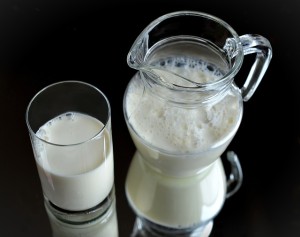Shoulder pain has a way of creeping into nearly every part of daily life. Simple movements — like reaching into a cabinet, fastening a seatbelt, getting dressed, or even finding a comfortable sleeping position — can suddenly become frustrating or downright painful....
Sleep plays a vital role in healing, recovery, and overall well-being. Unfortunately, hip pain can make getting a full night’s rest feel nearly impossible. Tossing and turning to find a comfortable position, waking up from sharp or aching pain, or starting the morning...
If you are struggling with lower back pain that radiates down your leg, you might have hit the internet searching for answers, only to find the terms “sciatica” and “herniated disc” discussed frequently. This is because both conditions can cause debilitating back...
Maintaining a Healthy Diet and Sports Nutrition

When you’re an athlete dedicated to pushing your body to reach the many demands of a sport, it’s crucial that you eat a balanced, nutritious diet to get the necessary fuel as well as replenish the vitamins and minerals your body loses. If you don’t eat the right foods, your body could suffer, which will affect your performance and could lead to serious injury.
Keep reading for more information about how to maintain a healthy diet and the importance of sports nutrition.
Different Types of Food
When fueling your body for peak performance, you want to consume calories from a variety of food sources to gain the nutrients each one contains. A healthy sports diet should include a balanced intake of carbohydrates and proteins so the body can utilize these nutrients during physical activity.
Protein
Protein is necessary for lean muscle mass maintenance, repair, and growth and optimum immune system function. Food sources of protein include meat, poultry, fish, eggs, soy, nuts, legumes, tempeh, and dairy products.
Carbohydrates
Carbohydrates are the most efficient sources of energy production and the most important for sports performance. They fuel the central nervous system and are stored in the body as glycogen to be used during exercise. Food sources of carbohydrates include bread, cereal, rice, pasta, fruits, dairy products, dry beans, and starchy vegetables.
Fat
Fat serves many purposes in the body, including protecting your internal organs from trauma, helping to absorb necessary vitamins from food, helping to manufacture hormones, providing an energy source, and maintaining healthy skin and hair. Food sources of fats include oils from plants such as olives, nuts, seeds, and peanuts; animal fats and fish oils; and higher-fat dairy products.
Calcium
Calcium works to prevent stress fractures and osteopenia, which is a loss of bone tissue that can lead to osteoporosis. If you typically avoid dairy products in your diet, try to opt for low-fat versions instead. You can also purchase low lactose or lactose-free milk. Three to four servings of dairy a day is recommended. Food sources of calcium include milk and milk products, calcium-fortified milk substitutes, almonds, broccoli, and dark-green leafy vegetables. Calcium supplements also are available.
Iron
It’s crucial to incorporate iron into your diet for energy and good health. Iron transports oxygen throughout the body and manufactures hemoglobin. Red meat is a good source of iron, and other food sources include poultry, fish, egg yolks, iron-fortified cereals, breads and other grains, legumes, nuts and seeds, dark-green leafy vegetables, and dried fruit. If you’re a vegetarian, you should take a multi-vitamin and mineral supplement that contains 100% of the daily requirement for iron.
Whether you’re a serious athlete or just focusing on being healthier, it’s vital to have a nutritious diet. The vitamins and minerals you consume from certain foods provide your body with the nutrients it needs to perform appropriately.
For more information about maintaining a healthy body as an athlete, download our eBookThe Athlete’s Guide to Reaching Peak Performance and Preventing Injury.



